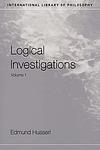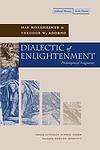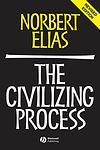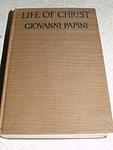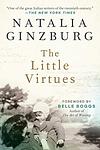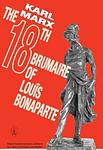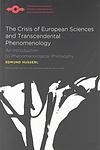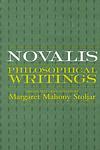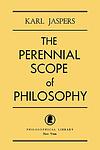The Greatest Italian, German "Nonfiction" Books of All Time
Click to learn how this list is calculated.
This list represents a comprehensive and trusted collection of the greatest books. Developed through a specialized algorithm, it brings together 305 'best of' book lists to form a definitive guide to the world's most acclaimed books. For those interested in how these books are chosen, additional details can be found on the rankings page.
Genres
Countries
Date Range
Reading Statistics
Click the button below to see how many of these books you've read!
Download
If you're interested in downloading this list as a CSV file for use in a spreadsheet application, you can easily do so by clicking the button below. Please note that to ensure a manageable file size and faster download, the CSV will include details for only the first 500 books.
Download-
26. Phenomenology of Mind by G. W. F. Hegel
This profound philosophical work delves into the evolution of consciousness, examining the stages it goes through from simple sensory awareness to the complexities of ethical life and self-awareness. The author argues that the mind does not exist in isolation, but rather develops through interpersonal relationships and societal interactions. The book also presents the concept of dialectical reasoning, suggesting that truth is not static but evolves over time through a process of thesis, antithesis, and synthesis.
The 1423rd Greatest Book of All Time -
27. Storm of Steel by Ernst Jünger
"Storm of Steel" is a memoir of a German officer's experiences during World War I. The book provides a detailed account of the daily life in the trenches, the brutal and chaotic nature of warfare, and the psychological impact on the soldiers. The author describes the horrors of war with a sense of detachment, viewing the battlefield as a place where one's character is tested and shaped. Despite the grim subject matter, the memoir is often noted for its poetic language and vivid imagery.
The 2443rd Greatest Book of All Time -
28. Decline of the West by Oswald Spengler
"Decline of the West" is a comprehensive historical and philosophical work that explores the rise and fall of civilizations. The author argues that every civilization has a life cycle, from birth to maturity and finally to decline. He suggests Western civilization is in its final stage of decline, comparing it to the end phases of the Greco-Roman civilization. The book also introduces the concept of 'pseudomorphosis', where a civilization is so deeply influenced by a previous culture that it suppresses its own authentic culture.
The 1643rd Greatest Book of All Time -
29. The Drowned and the Saved by Primo Levi
This book is a deeply moving exploration of the Holocaust, written by a survivor. It delves into the horrifying experiences at Auschwitz, examining the psychological impact on the prisoners, the brutal behavior of the guards, and the complex moral dilemmas faced by both. The author also discusses the concept of memory and its unreliability, especially in the context of such traumatic events, and analyzes the ways in which the Holocaust has been represented and remembered in society. The book serves as a profound meditation on the human condition under extreme circumstances.
The 1827th Greatest Book of All Time -
30. Essays and Aphorisms by Arthur Schopenhauer
This book is a collection of philosophical essays and aphorisms that delve into an array of topics including morality, religion, and philosophy. The author presents a pessimistic worldview, arguing that suffering is an inherent part of human existence. He discusses the nature of freedom, the importance of individuality, and the role of art and aesthetics in life. The book is known for its accessible style, making complex philosophical ideas understandable for a general audience.
The 1864th Greatest Book of All Time -
31. The Fear Of Freedom by Erich Fromm
The book explores the psychological and societal mechanisms that lead individuals to relinquish their autonomy and seek security in authoritarian systems, despite the inherent dangers of such a surrender. It delves into the historical context of the 20th century, particularly the rise of fascism and totalitarianism, to understand the paradoxical inclination of people to escape freedom's responsibilities. The author argues that true freedom requires not only the absence of external constraints but also the presence of inner psychological conditions that enable self-reliance, critical thinking, and the ability to love and connect with others. The work challenges readers to confront the difficult task of achieving positive freedom through self-awareness and the development of one's human potential.
The 1914th Greatest Book of All Time -
32. The Marriage Of Cadmus And Harmony by Roberto Calasso
"The Marriage of Cadmus and Harmony" is a unique exploration of Greek mythology. The narrative follows the journey of Cadmus, a Phoenician prince, and his marriage to Harmony, a goddess. The book delves deep into the complex and rich tapestry of Greek myths, presenting them as a continuous and ever-evolving story. It offers fascinating insights into the gods, heroes, and monsters of ancient Greece, while also drawing connections to modern life and thought.
The 1970th Greatest Book of All Time -
33. Logical Investigations by Edmund Husserl
This seminal work is a foundational text in the field of phenomenology and philosophy, presenting a rigorous critique of psychologism—the view that logic is a part of psychology—and arguing for the independence and objectivity of logical truths. Through a series of detailed investigations, the author explores the nature of meaning, the structure of consciousness, and the relationship between language and logic. By distinguishing between the act of thinking and the content of thought, the work lays the groundwork for a new science of consciousness and establishes the author as a pivotal figure in 20th-century philosophy. The text is notable for its methodical approach and its significant influence on both the analytic and continental traditions in philosophy.
The 1972nd Greatest Book of All Time -
34. Prison Notebooks by Antonio Gramsci
The book in question is a collection of intellectual and critical writings composed by an influential Marxist thinker while incarcerated by a Fascist regime. These notebooks delve into a wide array of subjects, including political theory, sociology, critical theory, and cultural analysis. Central to the work is the concept of cultural hegemony, which explores how state power and societal norms are maintained not just through force but also through cultural institutions and practices that shape public consciousness. The author's reflections on power, class, and ideology have had a profound impact on contemporary political and social thought, offering a nuanced understanding of the superstructures that govern societal dynamics and the potential for transformative change.
The 2018th Greatest Book of All Time -
35. Dialectic Of Enlightenment by Max Horkheimer, Theodor Adorno
"Dialectic of Enlightenment" is a seminal philosophical work that explores the nature of enlightenment and its paradoxical relationship with the concept of reason. The authors argue that the Enlightenment's quest for knowledge, freedom, and autonomy has inadvertently led to the opposite: a form of domination and control through instrumental reason. They examine how the Enlightenment's rationality, once aimed at liberating individuals from myth and superstition, has devolved into a tool of oppression, giving rise to totalitarian systems and a culture industry that manipulates mass society. The book delves into various cultural artifacts, including literature, film, and popular culture, to illustrate how enlightenment has become self-destructive, ultimately questioning the possibility of true emancipation in a society governed by the very rationality that was supposed to set it free.
The 2018th Greatest Book of All Time -
36. The Civilizing Process by Norbert Elias
"The Civilizing Process" is a sociological treatise that explores the development of manners, changes in behavior, and the evolution of social norms from the medieval period to the early modern era in Western Europe. The book argues that the transformation in social codes, particularly around violence and the regulation of impulses, is closely linked to the formation of state power and the monopolization of physical force. Through a detailed analysis of historical documents on etiquette, the author illustrates how the increasing pressures of social structures and interdependencies require more regulated forms of behavior, leading to what is described as the "civilizing process." This process, according to the author, reflects broader socio-political changes and is integral to understanding the dynamics of state formation and individual behavior regulation in European history.
The 2143rd Greatest Book of All Time -
37. Travels by Marco Polo
This book is a detailed account of a Venetian merchant's extensive travels throughout Asia during the 13th century. The narrative provides a comprehensive exploration of the diverse cultures, customs, landscapes, wildlife, and wealth of the Eastern world, including the Mongol Empire and China, where the author spent time in the court of Kublai Khan. His descriptions of the grandeur and sophistication of these civilizations challenged European assumptions about the East, and his tales of exotic wonders and adventures continue to captivate readers today.
The 2364th Greatest Book of All Time -
38. Life of Christ by Giovanni Papini
"Life of Christ" is a comprehensive biography of Jesus Christ, exploring his life, teachings, and impact on humanity. The book delves into the historical, cultural, and spiritual context of his era, providing in-depth analysis of his miracles, parables, and relationships with his disciples and followers. The author also examines the significance of Christ's crucifixion and resurrection, aiming to provide a thorough understanding of his life and mission.
The 2443rd Greatest Book of All Time -
39. Memoirs of My Nervous Illness by Daniel Paul Schreber
The book is a personal account of a prominent German judge's struggle with severe mental illness. It provides a detailed and vivid description of his experiences with psychosis, hallucinations, and delusions, which he attributes to divine intervention and cosmic forces. The author's attempt to understand and make sense of his condition forms the core of this memoir, and his insights have been influential in the fields of psychology and psychiatry. His narrative is a unique exploration of the mind and its relationship with reality, providing an intimate perspective on mental illness.
The 2443rd Greatest Book of All Time -
40. The Little Virtues by Natalia Ginzburg
"The Little Virtues" is a collection of essays that delve into the fabric of everyday life, exploring themes such as the intricacies of family relationships, the importance of personal growth and integrity, and the role of education and parenting. The author reflects on her own experiences, including her upbringing in Italy, the impact of World War II on her life, and her observations on the cultural and societal norms of her time. With a blend of personal anecdote and philosophical insight, the essays advocate for the pursuit of larger virtues—such as generosity, honesty, and courage—over the 'little virtues' like frugality and caution, suggesting that a life well-lived is one that embraces the full spectrum of human potential and kindness.
The 2636th Greatest Book of All Time -
41. The 18th Brumaire of Louis Bonaparte by Karl Marx
This historical work provides a detailed analysis of the coup d'etat that brought Louis Bonaparte to power in France in 1851. The author examines the social and political dynamics that allowed Bonaparte to seize control, including the role of the bourgeoisie and the proletariat. He presents a critique of the event itself and its implications for the class struggle, suggesting that history repeats itself, first as tragedy, then as farce.
The 2779th Greatest Book of All Time -
42. The Crisis of European Sciences and Transcendental Phenomenology by Edmund Husserl
This book is a philosophical work that explores the crisis facing the sciences in Europe, arguing that this crisis stems from the disregard for transcendental phenomenology. The author asserts that the sciences have lost their grounding in the world of lived experience and have become too abstract and disconnected from human life, leading to a crisis of meaning. He proposes a return to the "lifeworld" and a recentering of science on human experience, using the methods of phenomenology to uncover the essential structures of consciousness and the world.
The 2830th Greatest Book of All Time -
43. The Gay Science by Friedrich Nietzsche
The book in question is a philosophical work that delves into the author's ideas on morality, truth, and the nature of human existence. It is known for its poetic and aphoristic style, presenting a critique of contemporary culture and the Western intellectual tradition. The author introduces the concept of the "eternal recurrence" and famously proclaims the "death of God," challenging readers to confront the implications of a world devoid of divine authority and to embrace the potential for creating their own values. The work is a celebration of art, science, and the joyous wisdom that comes from living a life of intellectual inquiry and creative freedom.
The 2894th Greatest Book of All Time -
44. Autobiography by Benvenuto Cellini
The book is a vivid personal account of a 16th-century Italian artist and goldsmith, providing a detailed portrayal of Renaissance life. The author narrates his tumultuous career, which spanned artistic triumphs, patronage under powerful figures, and frequent legal and violent skirmishes. His narrative is filled with tales of his work on important commissions, his encounters with notable contemporaries, and his passionate dedication to art. The autobiography stands out for its lively storytelling, the author's brash personality, and insights into the social and cultural dynamics of the time, making it a valuable historical document as well as an engaging personal story.
The 2898th Greatest Book of All Time -
45. I Will Bear Witness by Victor Klemperer
"I Will Bear Witness" is a chilling personal account of life in Nazi Germany from 1933-1941. The author, a Jewish professor, meticulously details the daily life under Hitler's regime, capturing the fear, oppression, and constant threat that Jews faced. The diary serves as a powerful testament to the horrors of the Holocaust and the resilience of those who endured it.
The 3025th Greatest Book of All Time -
46. Philosophical Writings by Novalis
"Philosophical Writings" is a collection of works by a key figure in German Romantic philosophy. The book explores the author's thoughts on a wide range of subjects including art, religion, morality, nature, and the human mind. The author's poetic and imaginative style of writing is used to challenge traditional philosophical ideas and to propose a more holistic understanding of the world. The text is recognized for its deep insights and its significant influence on later philosophical and literary movements.
The 3087th Greatest Book of All Time -
47. Beethoven's Letters by Ludwig van Beethoven
This book offers an intimate glimpse into the personal life and inner world of one of classical music's greatest composers through a collection of his correspondence. Spanning from his early years in Bonn through his rise to fame in Vienna and until his death, the letters reveal his relationships with family, friends, and fellow artists, his struggles with hearing loss, and his insights into his creative process. They also reflect his financial worries, his search for love, and his passionate involvement with the political and cultural movements of his time. The letters are a testament to his enduring legacy and provide a deeper understanding of his music through the lens of his personal experiences and emotions.
The 3093rd Greatest Book of All Time -
48. Illuminations by Walter Benjamin
"Illuminations" is a collection of essays that delve into the complex interplay between society, culture, and art. The book explores the nature of artistic expression and its role in historical contexts, examining how cultural artifacts reflect and influence the conditions of their times. It discusses the concept of the "aura" of artworks, the impact of technological reproduction on art's value and meaning, and the role of the critic in interpreting cultural texts. The work also includes a seminal essay on the philosophy of history, which critiques traditional historical narratives and argues for a more nuanced understanding of the past, informed by Marxist theory and a sensitivity to the cultural and political undercurrents that shape human experience.
The 3202nd Greatest Book of All Time -
49. The Perennial Scope Of Philosophy by Karl Jaspers
The book in question explores the enduring nature of philosophical inquiry, examining how it transcends temporal and cultural boundaries to address fundamental questions of existence, knowledge, and ethics. The author argues that philosophy is not confined to any particular era or dogma but is a continuous pursuit of truth that evolves with human thought while remaining rooted in the quest for universal understanding. Through a critical examination of historical philosophical movements and their contributions to the ongoing dialogue, the work emphasizes the importance of philosophy in providing a framework for individuals to confront the mysteries of life and the universe, encouraging readers to engage in their own philosophical contemplation.
The 3279th Greatest Book of All Time -
50. A Comparative Study Of Total Power by Karl Wittfogel
The book in question is a scholarly examination of the concept of 'hydraulic civilization,' a term used to describe societies that manage large-scale water projects such as irrigation and flood control. The author argues that the bureaucratic structures necessary to control water resources in arid regions historically led to the centralization of power and the development of autocratic or despotic forms of government. Through comparative analysis, the work explores how the management of water resources influenced social, economic, and political structures, and how this 'total power' shaped the civilizations in question, with a particular focus on Asia. The study delves into the relationship between natural environments, technological capabilities, and the evolution of political systems.
The 3279th Greatest Book of All Time
Reading Statistics
Click the button below to see how many of these books you've read!
Download
If you're interested in downloading this list as a CSV file for use in a spreadsheet application, you can easily do so by clicking the button below. Please note that to ensure a manageable file size and faster download, the CSV will include details for only the first 500 books.
Download






